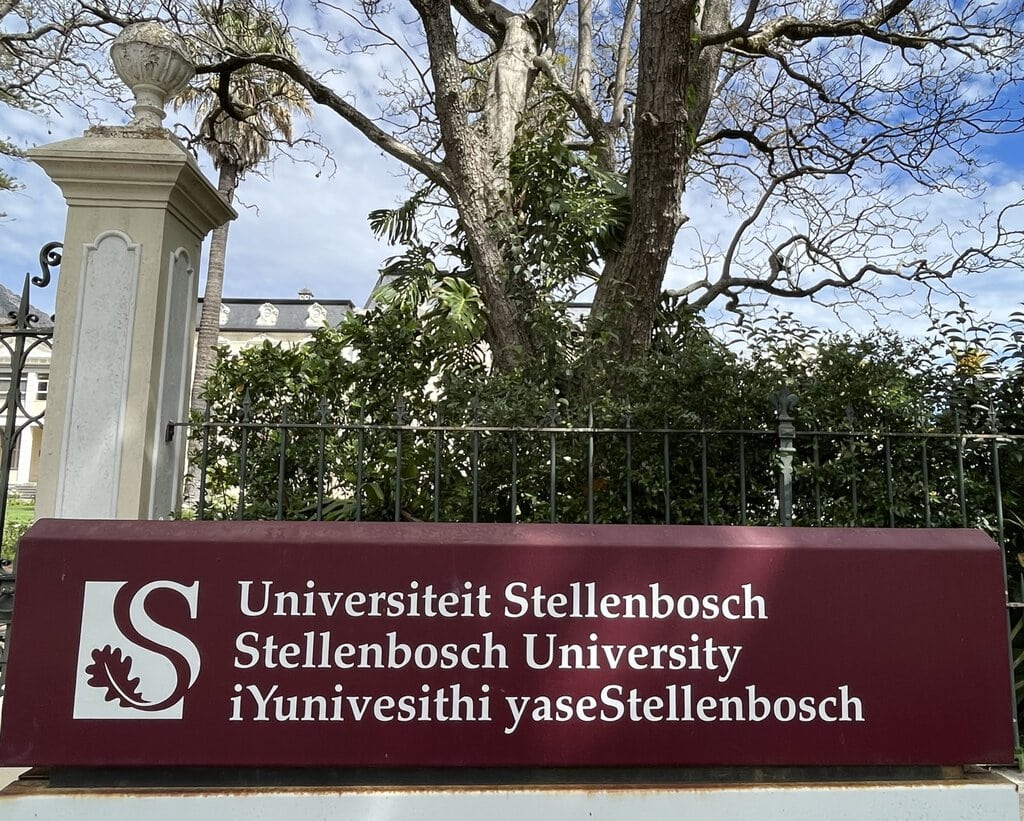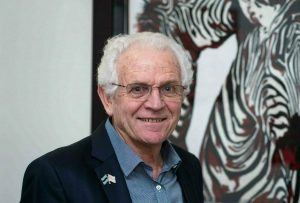Images of arson, the destruction of irreplaceable paintings and books, disruption of classes and violent student protests on South Africa’s most excellent campuses, hang heavily on the minds of parents whose children must go to university. It does not fit our idea of a university.
Stellenbosch University (SU) was largely spared this physical devastation. It is the destructive attack on the intellectual property of Stellenbosch that upsets former students and parents so much. It is the relentless attacks on Afrikaans, on traditional values, and on the character and ethos of the university that unleash a comprehensive revulsion. This is the drastic move to weeks and the denigration of everything to do with legacy, heritage, culture, Afrikaans and Afrikaners, which the community of former students finds repulsive.
We wanted our children and their children to have the same positive student experience as us: dormitory life, sock and sayer, carnival and student jolyt. We wanted the class and book work to also expose them to the classical world of science and philosophy at the feet of masters, and to be part of the journey of discovery to new knowledge that shifts horizons, or to principles that are still valid generations later .
What uniquely endeared SU for decades was how science was connected to the community from which it was nurtured.
For our generation, the soul of SU is its academic excellence, modeled on pure science without the spectacles of political servitude or ideological coercion. When a university is stripped of that, little remains that distinguishes the institution as a center of excellence.
Academic and scientific excellence coincides with the respect and admiration for the professor or professor, the master of the subject. As the authoritative expert, she or he is a pillar of integrity and wisdom, and is recognized for her or his insight, understanding of and grasp of the science of the subject area.
 However, when the students and the community around the university, the alumni and the world increasingly suspect that narrow political criteria are applied to identify and appoint the professor, such as skin color, political acceptability or approval by a cadre deployment committee, there is no power which cannot compel us to respect or admire. Black Economic Empowerment as it is introduced as an ideology of exclusion and racial discrimination has no place at a university as an institution of excellence!
However, when the students and the community around the university, the alumni and the world increasingly suspect that narrow political criteria are applied to identify and appoint the professor, such as skin color, political acceptability or approval by a cadre deployment committee, there is no power which cannot compel us to respect or admire. Black Economic Empowerment as it is introduced as an ideology of exclusion and racial discrimination has no place at a university as an institution of excellence!
The same applies to the university management. Alumni, parents and the students themselves want leaders at the helm of the university they can look up to. Questions about integrity, nepotism, conflicting interests and double standards are quickly tarnishing the reputation of such an institution. Nothing makes a campus rot faster weeks-activism in his management.
In Stellenbosch, the tectonic shift of respect, expectations, trust and loyalty happened at the same time when Afrikaans was kicked out as a language of science, of knowledge, academia and teaching. When the rug was pulled out from under Afrikaans, the university did not become the unlimited space for ideas that the abolitionists dreamed of.
It has unfortunately become a more distressed place in which racial quotas are embraced not discreetly but enthusiastically, and in which the weeks-environment tolerates only one set of values. It has become an academic environment in which technical knowledge is still imparted, but wisdom and appreciation for its application in the community is no longer cultivated along with it.
A pride, a measure of integrity that has everything to do with the status and place of the university in the community, is swept out the back door along with Afrikaans.
The same academic leaders who foam-at-the-mouth on social media celebrated the end of Afrikaans at the business school, were caught as the cover-ups of a kind of nepotism that one would rather expect at Nkandla. It also ushers in the end of a value system at Stellenbosch, a moral framework and a pursuit of excellence.
Language, culture, character, tradition and a positive student experience on campus are at top universities around the world the foundation and attachment point of networks of friends, confidants and a business contact network that lasts a lifetime.
This no longer happens in Stellenbosch. The glue failed and now nothing wants to stick.

What was glue, and held our student networks together over decades, is aggressively demonized and made suspect. The university management goes to great lengths to bring induction ceremonies, initiation fun, exclusive circles of friends in residences, traditions and heritage under suspicion and to declare them evils. The weeks-spirit wants to destroy and bury it all. Everything that is legacy, everything that is Afrikaans or Afrikaner, and everything that is built in the framework of family values, must be replaced.
Like thousands of Maties before, with and after me, I come from a rural agricultural community, and what is becoming of Stellenbosch bothers us to no end. We want to know what is wrong with the need for an African university. Who decided that family values no longer fit in Stellenbosch?
The last decade and more of the effective strangulation of the last African university was a big mistake, and we are not going to accept it lightly. The only bigger mistake would be not to widen the space in the next decade for the potential of Afrikaans’ higher functions as a language of science and the economy, of business enterprises, art and technology on campus.
We must work towards the point where the temporary disruption of characterlessness caused by a weeks-culture, a racial state framework and communityless globalization have brought about, need not be fatal.
Where our tracks lay over Coetzenburg, in large brass letters on the wall of the sports center stood: “Stellenbosch stands for an idea!” They were able to remove it in the meantime, but we still draw inspiration from it. That idea can no weeksactivist in our hearts and aspirations!








